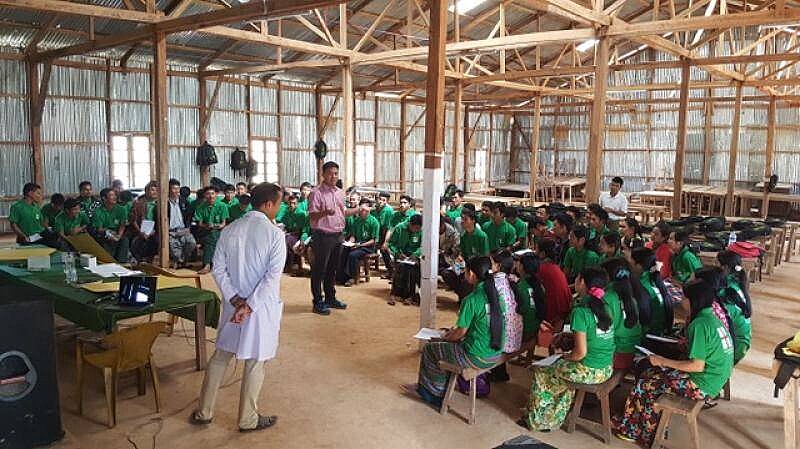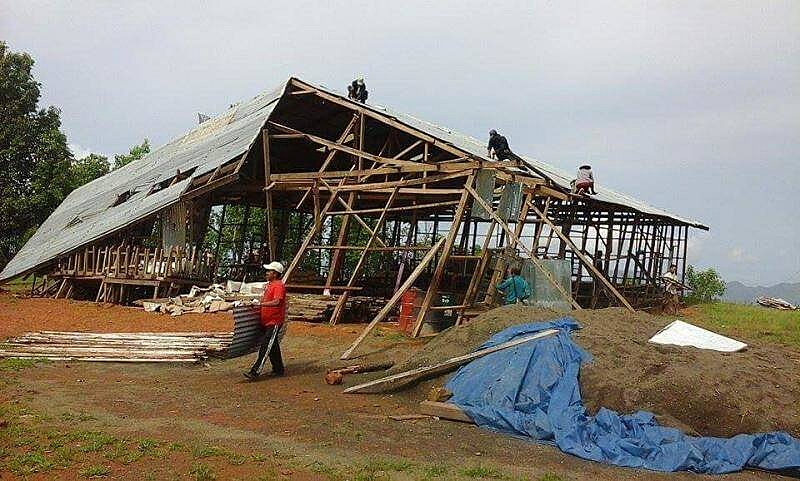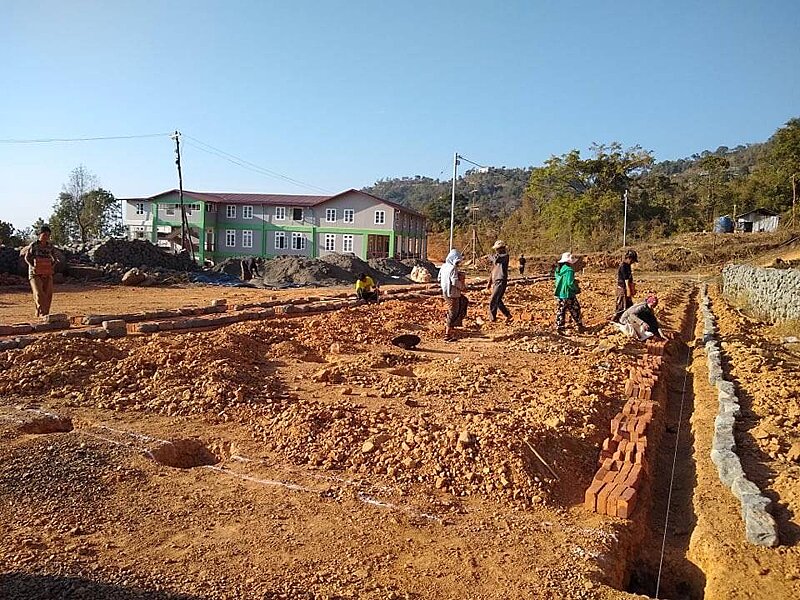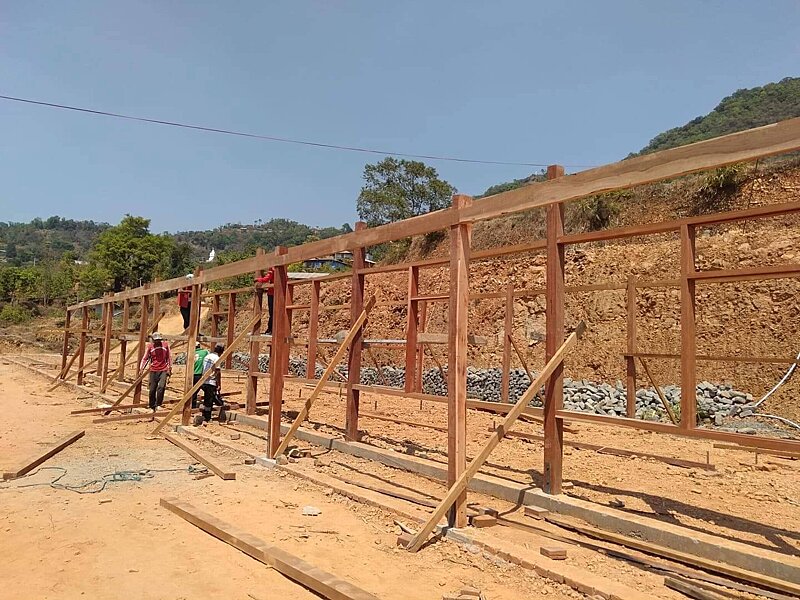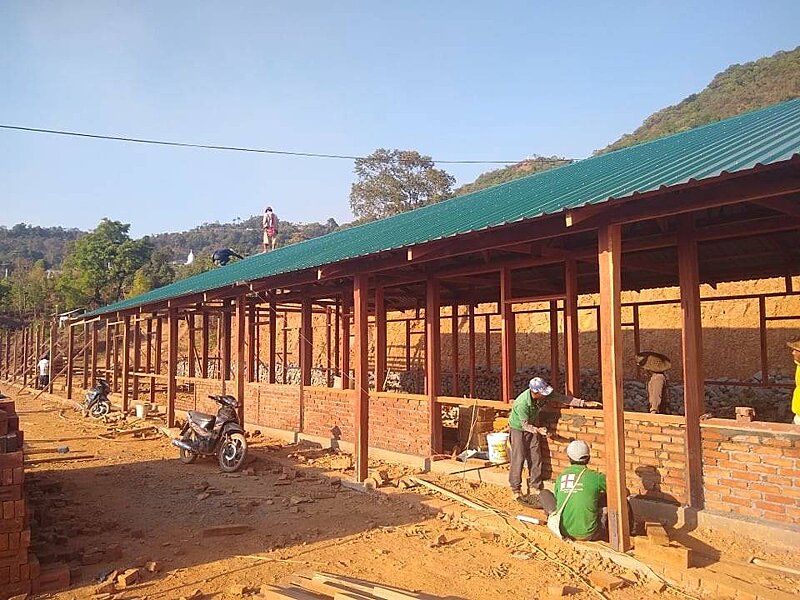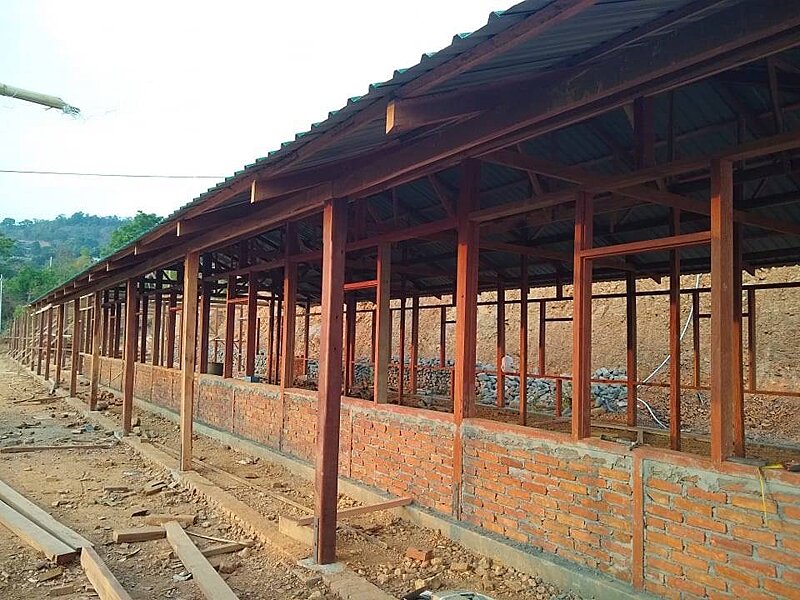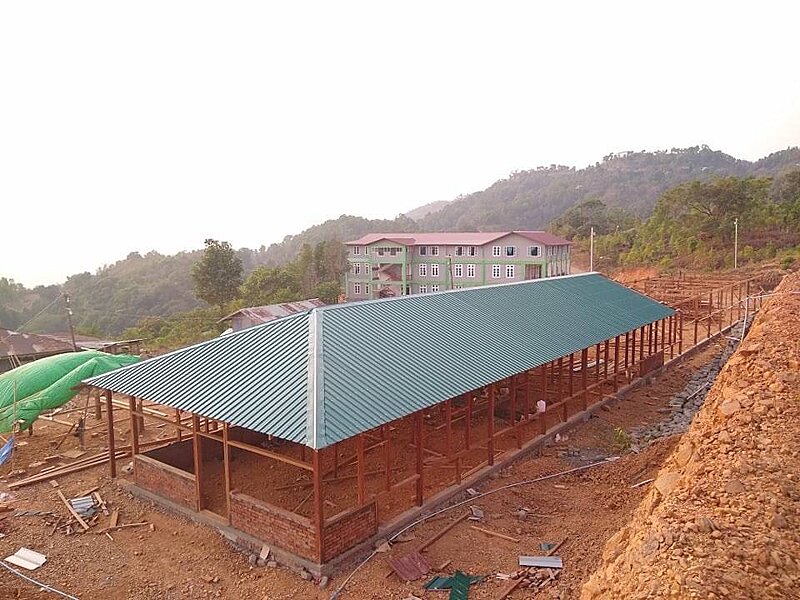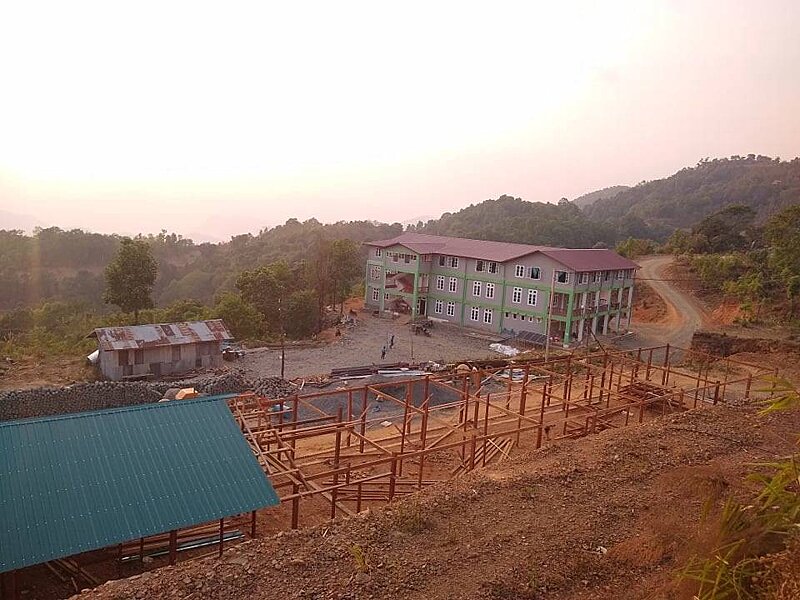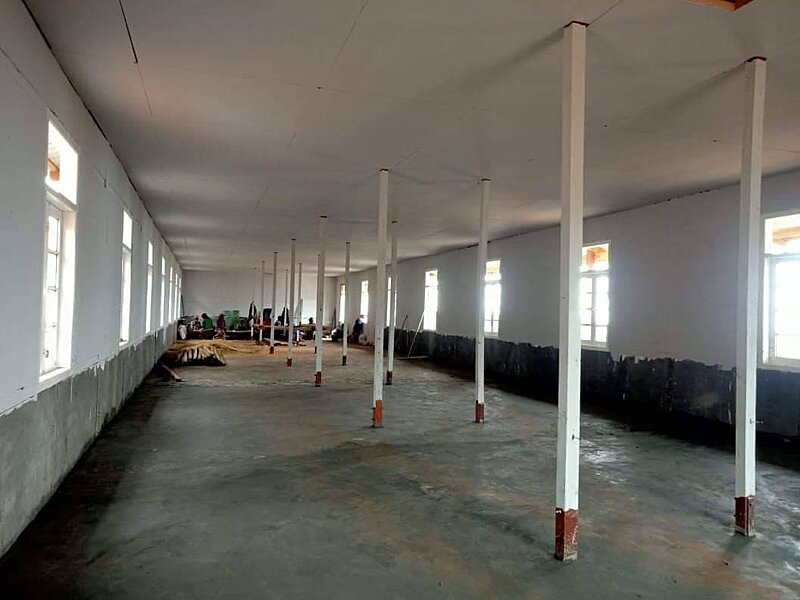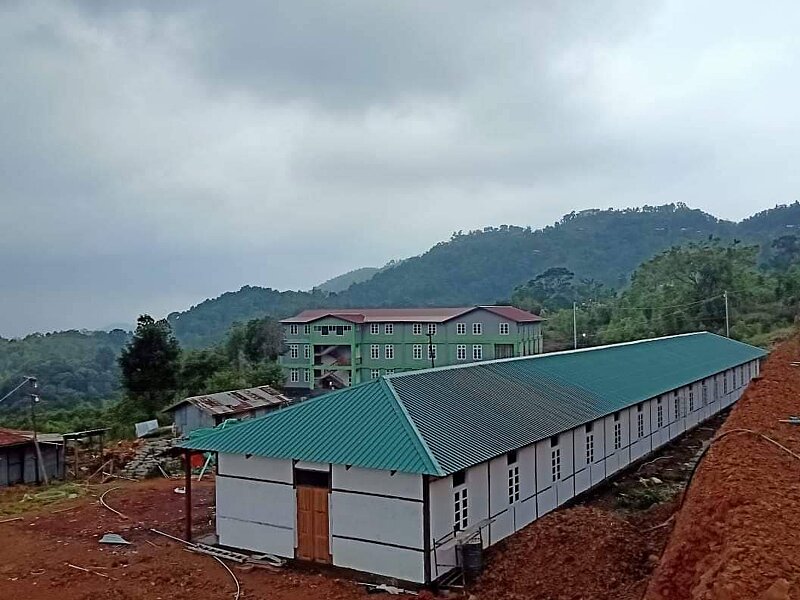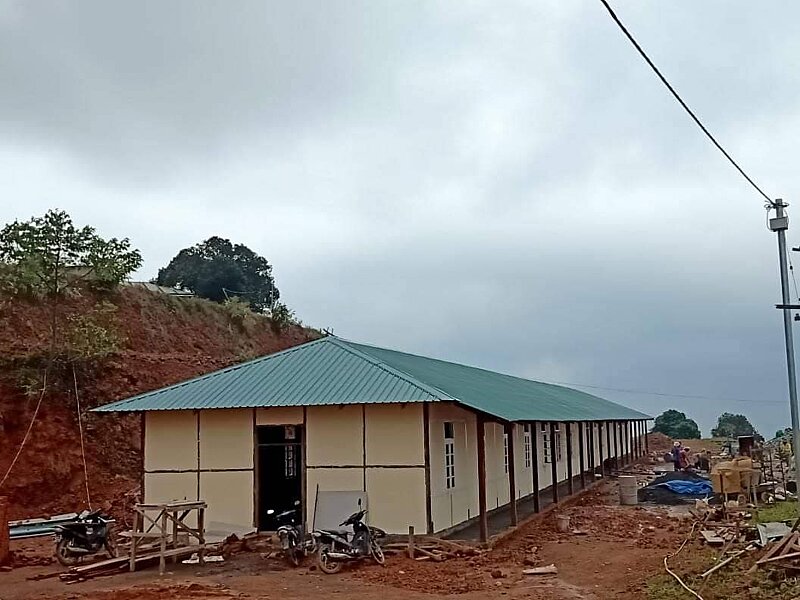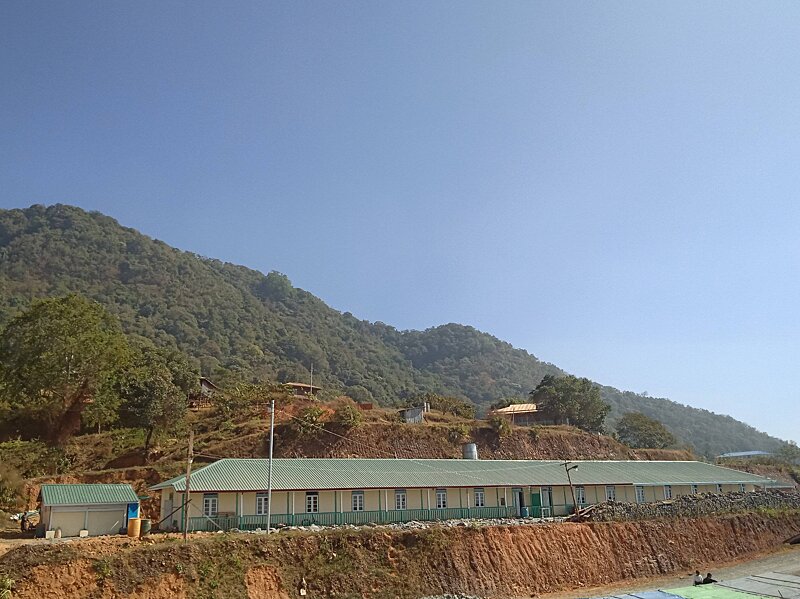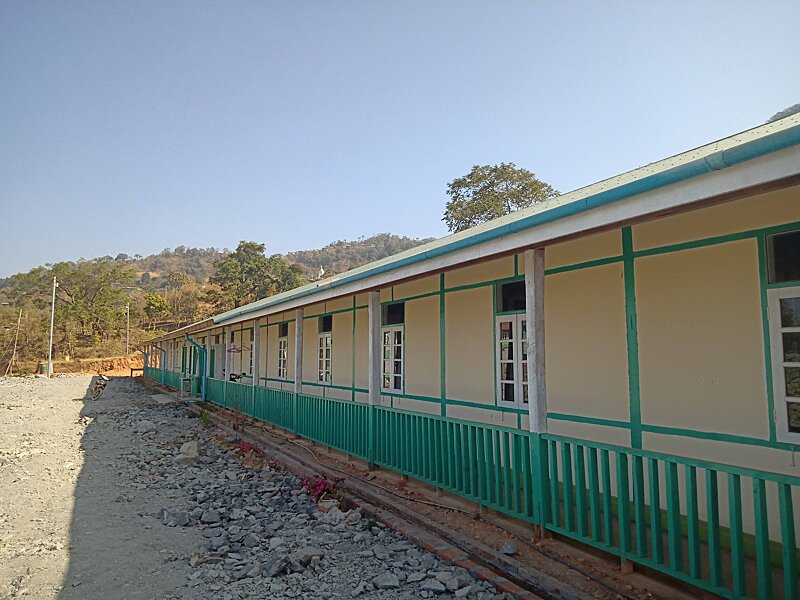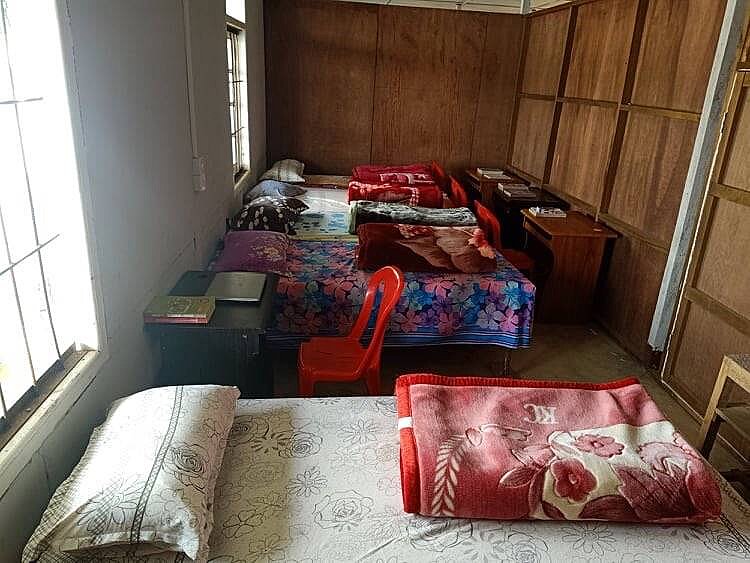Project Summary
The aim of this project is to build an accommodation hall which will complement the Health and Hope Training Centre, allowing it to be used to its full capacity.
In May 2017, Cyclone Mora destroyed seven buildings at the Health and Hope Myanmar (HHM) training centre in Lailenpi, Chin State. HHM have rebuilt the training facility which will provide the base from which to launch health, education and food security projects to the poorest of the poor in the remote regions of western Myanmar.
The accommodation hall is the final part of rebuilding the Health & Hope campus in Lailenpi. The overall scheme includes offices, classrooms, storage, the training hall, library, kitchen, dining area and staff accommodation. This building will provide the accommodation facilities required at the heart of HHM’s work, enabling full-use of Health & Hope training centre as a base for running projects, undertaking outreach work and training villages. With the near completing of the Training Centre, the HHM team now has a secure multi-use building with classrooms and a large training hall from which to continue their work.
In June 2019, the Education for All project was launched, and provided 104 students with full-time education for 10 months of the year. The project aimedto radically transform the poor pass rate (less than 20%) as well as the life opportunities, for these students. The training centre has provided classroom facilities and accommodation for students, as well as facilities for other training workshops for Clinical Health Workers and Traditional Birth Attendants, that have taken place throughout the year. However, without accommodation, the training centre is only able to be used at half of its capacity.

